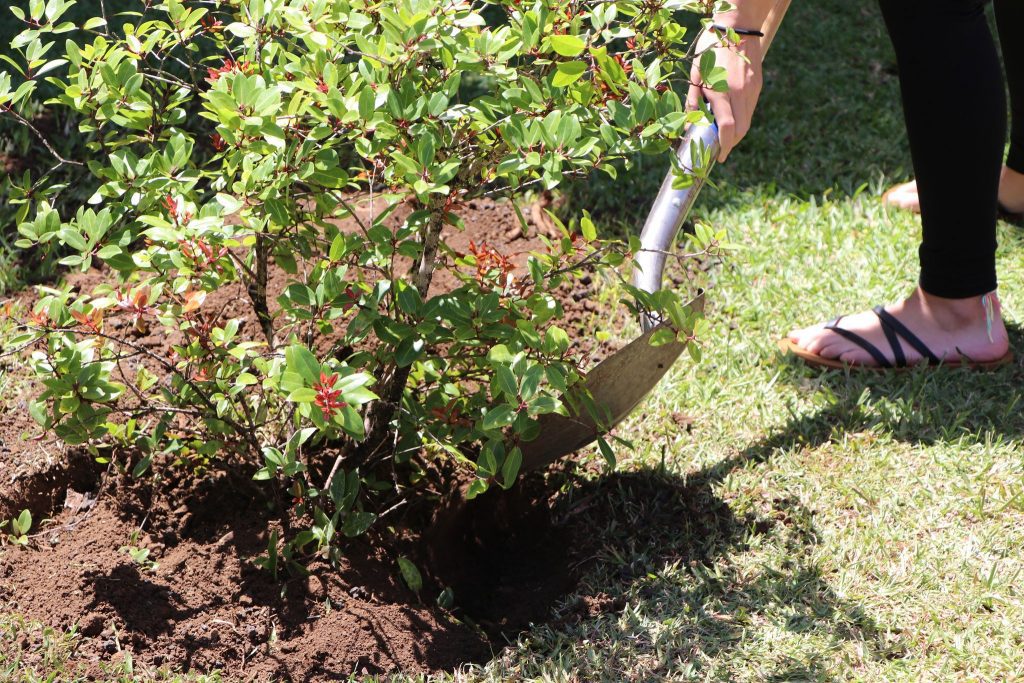The earnest efforts by hundreds of school children, their teachers, state lawmakers, and conservationists resulted in Gov. Ige signing SB2059 into law today, during a ceremony at Washington Place.
The measure designates ʻōhiʻa lehua as the official Hawai‘i State Endemic Tree. ʻŌhiʻa is the most common native tree in our forest and it is ubiquitous from lower elevations to the highest peaks.
In the still-smoldering crater of Kīlauea Iki at Hawai‘i Volcanoes National Park on Hawai‘i Island, ʻōhiʻa, their growth stunted by harsh conditions, bloom profusely. In the Wai‘anae Mountains of West O‘ahu, hundreds of ʻōhiʻa look down on urban development below. And in places like, the Pu‘u Maka‘ala Natural Area Reserve, also on the Big Island, ʻōhiʻa add rich color to what otherwise might be a monochromatic landscape.
During remarks, prior to signing SB2059, Governor David Ige said, “ʻŌhiʻa lehua is a symbol of Hawai‘i. As a keystone species it makes up fully 80% of our native forests. Unfortunately, Rapid Ōhiʻa Death has killed more than a million ʻōhiʻa trees on Hawai‘i Island alone over the past eight years. Providing this recognition for ʻōhiʻa will help spread the message about how important this species has been and will continue to be, to life in Hawai‘i.”
Gov. Ige told invited guests, including 30 keiki, that it was their powerful voices that helped bring today’s designation to reality and into law. “They are among those, who in the future, will help ensure our ʻōhiʻa-dominated forests survive and thrive for all generations,” Gov. Ige commented.
DLNR Chair Suzanne Case remarked that ʻōhiʻa deserves official recognition for many ecological and cultural reasons. “As it is a significant component of our critical watershed forests, it is the best species to allow for the recharge of our life-sustaining aquifers,” Case said.
It’s hoped the recognition of the ʻōhiʻa will increase awareness of its importance and will be of value in educating residents and visitors about the need to protect native forests from serious threats like Rapid Ōhiʻa Death.
“The students and teachers here today (at the bill signing) are a real testament to the important role education plays in protecting our fragile ecosystems and their importance to our way of life,” Case added. She also thanked Gov. Ige for his early leadership in instituting rules to stop the spread of the fungal disease between islands and for his consistent, strong support for watershed protection funding.
Several state legislators who supported the designation described the reasons why they got behind the ʻōhiʻa naming measure. The bill passed unanimously and noted that the legislature recognizes “the unique cultural, ecological, and economic importance and threats to the ʻōhiʻa lehua. As an endemic species it is only found in the Hawaiian Islands.”
The bill signing concluded with the ceremonial planting of a young ʻōhiʻa tree on the grounds of Washington Place. Gov. Ige, First Lady Amano-Ige, Chair Case, Senator Brian Taniguchi, Representative Lisa Marten, and students from Waimanalo Elementary and Mānoa Elementary schools took turns shoveling additional dirt around the plant and watering it.

